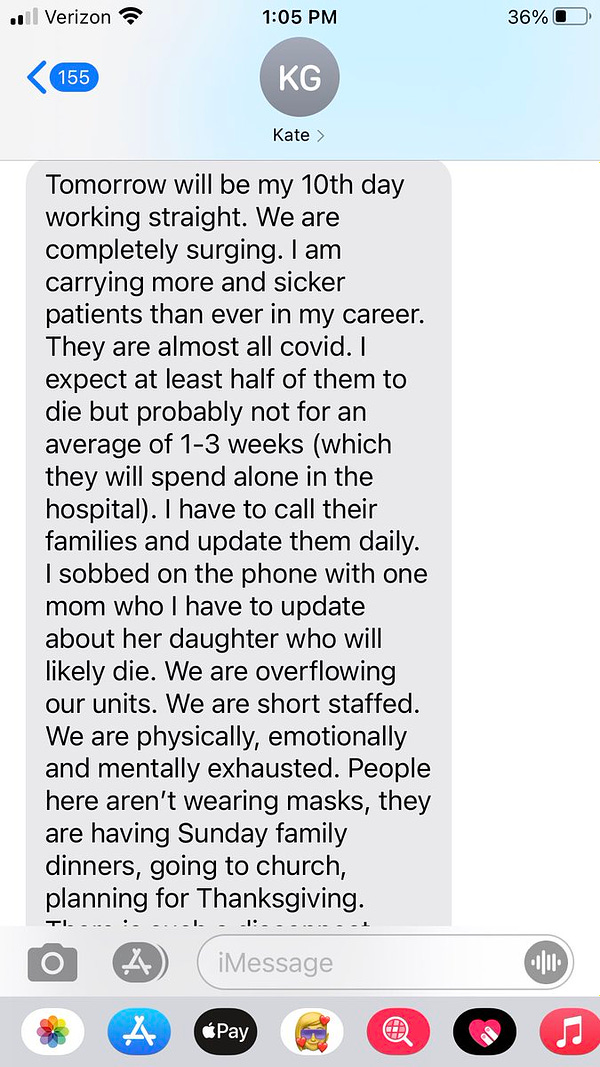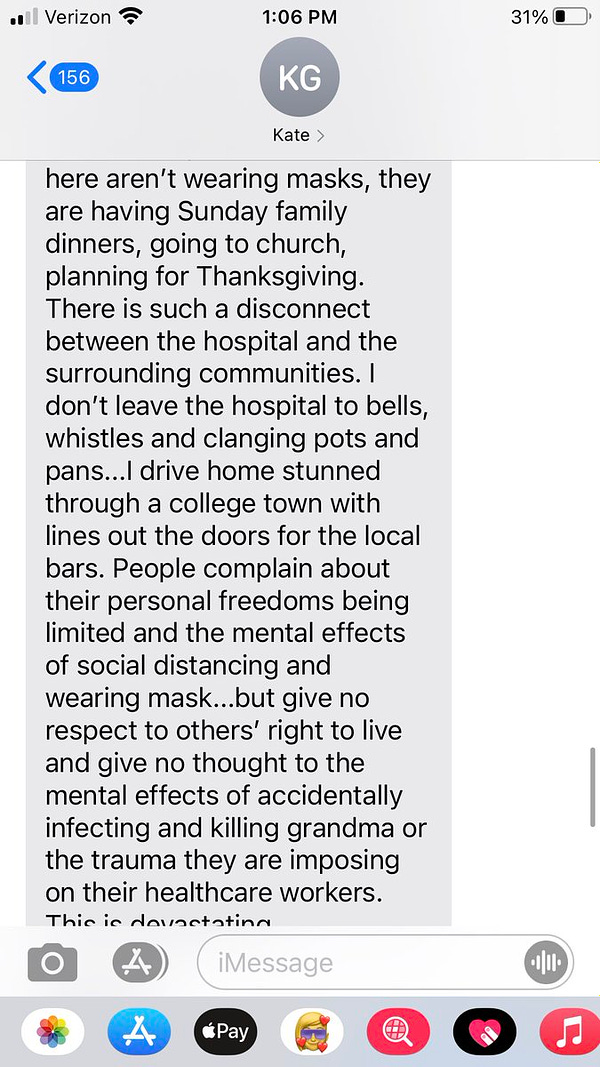Last night, like practically every Saturday night since Tom Hanks and Rita Wilson announced their COVID-19 diagnosis in mid-March, we stayed in. We ordered a pizza delivery from a local restaurant, poured ourselves cocktails (tequila and raspberry-lime Spindrift were made for each other) and pulled up the night’s livestream du jour: the brilliant Irish singer-songwriter and producer Róisín Murphy’s global concert film. For the next four and a half, we were transported to a bedazzled warehouse as Murphy tore through songs off her new disco-house album, “Róisín Machine,” in addition to a number of older hits and a few covers, with her band and a dancer. It was easily the best virtual concert I’ve seen all quarantine.
When she came to the set’s last song, an acoustic version of the Moloko song “Familiar Feeling,” I couldn’t stop the tears from falling. While performing the song, Murphy led her band of merry misfits out of the main “stage” area and marching through a graveyard of storage trunks and assorted equipment like it was a jazz funeral. They finally ended up in a freight elevator, performing to the camera through a Zoom meeting-like window while pounding at the plexiglass to the beat. It was beautiful and it was bitter. It was a perfect encapsulation of the moment we are all living in.
Nothing can come close
To this familiar feeling
We say it all without
Ever speaking
No matter how good the technology of any virtual concert, or how heartfelt and overdue the Zoom game night, we’re still just trapped in this thing. We’re all collectively exhausted and our surge capacities stretched beyond repair. As just one microcosm of this living horror show, live music is off the table indefinitely and independent venues are permanently shuttering across the country at an increasing clip. It’s estimated that 90 percent of these venues could close due to the pandemic. Meanwhile, touring musicians and the industry professionals that rely on them — like sound engineers and lighting professionals — are left in limbo.
Meanwhile, the beat goes on, faster and faster. As of yesterday, the U.S. has hit a total of 11 million coronavirus cases — and 1 million of those cases were reported last week.
What’s perhaps most frustrating about this resurgence of the pandemic in the U.S. is that anyone who was paying attention could have predicted it. While there is still a fair amount unknown about the virus, one thing we do know with confidence is that it is transmitted most effectively in indoor settings like the ones people are more likely to confine themselves to as summer turned to autumn. We also knew that this trend would overlap with the arrival of the flu season, which is really just beginning. And we also knew that in-person, indoor holiday gatherings and travel could also contribute to a surge of fresh cases.
And yet, many people appear to be out here just living their lives. In the past several weeks, I’ve noticed multiple friends and acquaintances sharing their flights and vacations out of state. Many people are eating out (unmasked) at restaurants repeatedly, most of them outdoors but some indoors as well. Many people are gathering with people they don’t live with indoors. Some restaurants I follow on social media have announced they will ignore Illinois’ requirement to end indoor dining, and others are wiggling around the guidance by rebranding indoor dining as “private event” hosting. Forty percent of respondents to one recent study said they are still planning on having large holiday gatherings and 10 percent of Americans responding to another survey specifically said they are still planning on traveling to a Thanksgiving gathering next week.
While these individuals’ and businesses’ decisions are personally frustrating, I’m reserving most of my anger for our federal and state governments that appear to have, essentially, given up any attempt at a comprehensive approach to addressing this pandemic. They somehow haven’t even hired the Philly Flyers’ viral sensation mascot Gritty to do a series of PSAs for reasons unknown.
All kidding aside, while the president, his administration and most of the GOP is busy amplifying voter fraud lies over the outcome of the election, we have seen no progress on pandemic relief legislation that would help businesses and individuals take the responsible actions of shutting down and staying home. At the state level, especially in Midwest states like Illinois and Wisconsin, our infection rates indicate that our current testing capacity is simply not cutting it — and yet it seems like there is a severe lack of political will and/or funding to make the decisions that need to be made.
So, it’s up to all of us. However it is possible, we must limit our exposure to this virus by staying home as much as possible and canceling social engagements. To fail to do so is a disrespect to the healthcare workers who are currently exhausted and under-staffed. It is a slap in the face to the people who have done seemingly everything right to protect themselves and their loved ones amid this pandemic but have still gotten sick. It’s ignorant and selfish.
As this piece titled “It’s Time to Hunker Down” in The Atlantic points out, there will be a return to something closer to a new “normal” at some point in the not-too-distant future. A vaccine is on the horizon and could be in the arms of the most vulnerable Americans as early as next month. But the logistics are challenging and, in a best case scenario, most of us won’t be vaccinated still until next fall. Let’s not blow this. Let’s be sure we’re around for that vaccine when it’s ready for us.
So how do we say no to this year’s Thanksgiving invite and other holiday gatherings? Etiquette experts quoted in this CNN story recommended making lots of “I” statements and share your feelings within the context of risk. Trust your instincts and consider proposing a virtual holiday gathering. Alternatively, gather outdoors, wear masks and maintain physical distancing.
For us, the choice is easy. I’ve heard from more close friends in the last few weeks who are personally impacted by the virus than at any point in the pandemic so far. I’ve also heard from my friends who are healthcare workers who are saying, point-blank, that they are running out of ICU beds and nursing staff at the facilities where they work. On Sunday, actress June Diane Raphael reported hearing similar news from a close friend:



The “fake news” jig is up. This virus is here, and our personal choices hold the power to decide how many more thousands of people must die before a vaccine arrives. Please, do the right thing, folks.
***
Listen: We recently stumbled on an artist named Haley Heynderickx on a Spotify mix and her song “The Bug Collector.” Heynderickx is a Portland-based singer-songwriter of the folk variety and I swear I’ve listened to this song 20 times in the last week alone. If you want to listen something that reminds you to breathe, this ain’t a bad option.
Watch: If you want to escape reality for a bit with some truly silly content but aren’t ready to put up the Christmas tree and dive into holiday offerings quite yet, I’d like to recommend the thriller The Wrong Stepmother, which is one of a number of Lifetime movies that were recently scooped up by Hulu. The acting is stilted, the dialogue is bad, but the iconic Vivica A. Fox produces and has a delightful cameo. The overall effect somehow turns out to be something of a campy romp.
Read: If you’re hunkering down like The Atlantic asked you to and are looking for some fresh reads, I’d kindly suggest Brandon Taylor’s Real Life. The book is a semi-autobiographical coming-of-age campus novel told from the vantage point of a gay, Black doctoral student navigating life at a Midwestern university. Within the first few pages of the book, I immediately clocked the scenery Taylor describes as the campus of the University of Wisconsin-Madison and its famous Lake Mendota terrace where the pitchers of Spotted Cow and scoops of Babcock Hall ice cream flow like water. Put simply, it lives up to the hype as one of the year’s best debut novels.
If you’re interested in learning more, Taylor recorded a conversation with a fellow queer writer, Garth Greenwell, in July.
Give: As you might have heard, control of the U.S. Senate will come down to two runoff races in Georgia in January. Control of the Senate will also have a huge impact on how much progress the Biden administration will be able to make on undoing the damage of the past four years, so these are critically important races. If you’re looking to make an impact, here’s a rundown of a number of organizations on the ground in Georgia that are working to drive voter turnout in the races in this newly-blue state.




